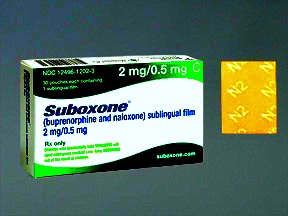Addiction specialists and legislators are calling for expanding access to medication-assisted treatment for addiction, USA Today reports. Only 40 percent of the 2.5 million Americans who could benefit from medication-assisted treatment are receiving it, according to the Substance Abuse and Mental Health Services Administration (SAMHSA).
Buprenorphine (sold under the brand name Suboxone) and methadone decrease drug cravings and greatly reduce the risk of relapse in people addicted to heroin and opioid painkillers such as hydrocodone and oxycodone, the article notes.
Medication-assisted treatment is a key part of the Obama administration’s plan to fight opioid addiction. According to Melinda Campopiano of SAMHSA, people addicted to opioids who are given medication-assisted treatment cut their risk of death from all causes in half. Their risk of becoming infected with HIV is also reduced by half, she added.
Greater use of medication-assisted treatment is supported by the the American Society of Addiction Medicine and a number of members of Congress, including Senator Edward Markey of Massachusetts and Senator Rand Paul of Kentucky. The legislators have introduced bills to expand medication-assisted treatment.
Many patients who want to use medication-assisted treatment find their insurance won’t cover it, or will only provide minimal coverage, according to Kelly Clark, President-Elect of the American Society of Addiction Medicine. If an insurance plan caps the amount of time that people can receive the treatment, they can relapse, she noted.
“Some people can taper off of it, but some people need it forever,” Clark said. “We don’t tell people, ‘Let’s decrease your dose of statins and see how you do.’ The goal of treating your cholesterol is not to get you off statins. The goal is to decrease your risk of a heart attack.”
Medicaid programs in at least 17 states will not pay for long-term methadone treatment, according to the Legal Action Center, which advocates for people with drug addiction.
Published
July 2015
 Get Support
Get Support

